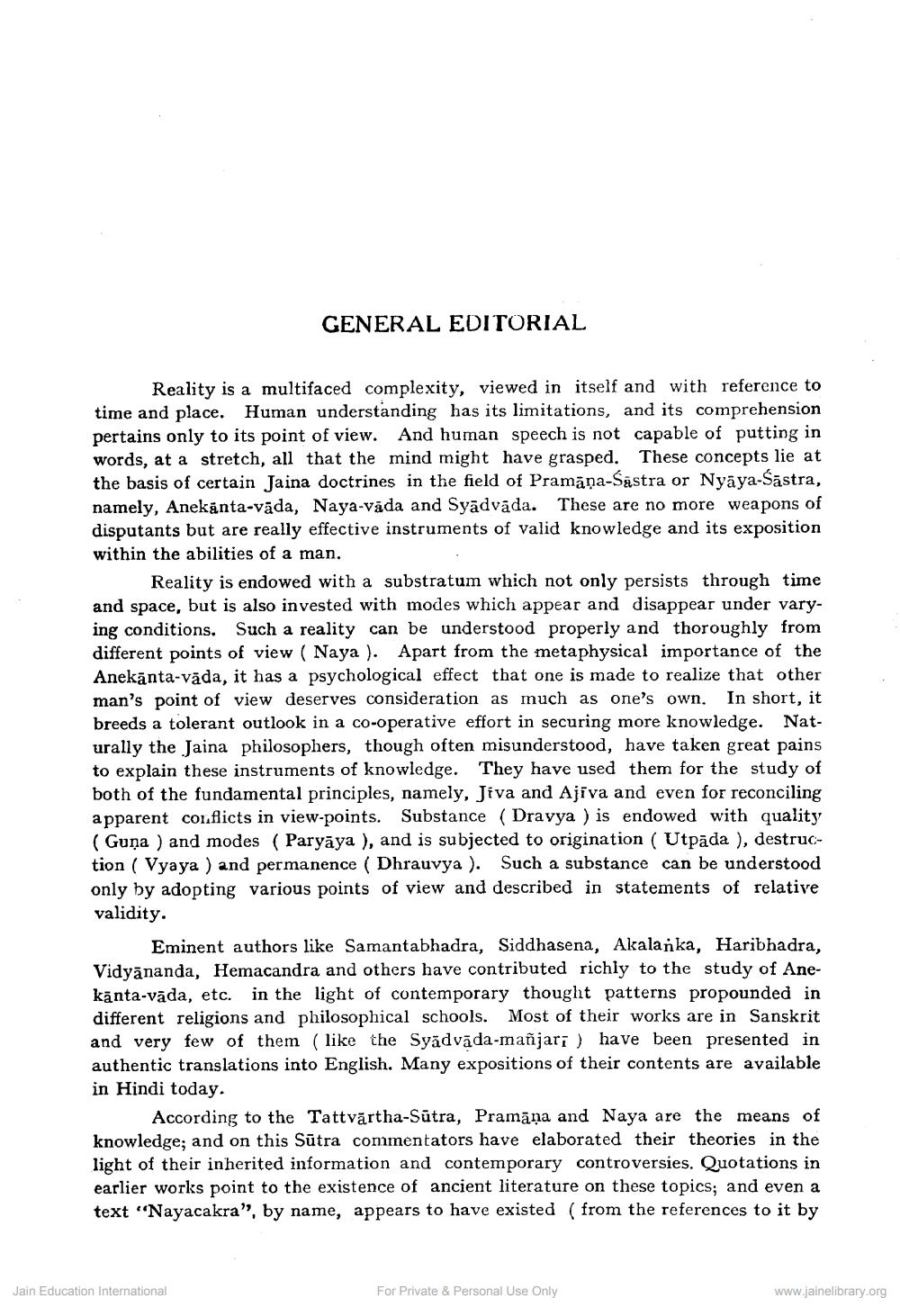Book Title: Naychakko Author(s): Mailldhaval, Kailashchandra Shastri Publisher: Bharatiya Gyanpith View full book textPage 7
________________ GENERAL EDITORIAL Reality is a multifaced complexity, viewed in itself and with reference to time and place. Human understanding has its limitations, and its comprehension pertains only to its point of view. And human speech is not capable of putting in words, at a stretch, all that the mind might have grasped. These concepts lie at the basis of certain Jaina doctrines in the field of Pramana-Sastra or Nyaya-Sastra, namely, Anekanta-vada, Naya-vada and Syadvada. These are no more weapons of disputants but are really effective instruments of valid knowledge and its exposition within the abilities of a man. Reality is endowed with a substratum which not only persists through time and space, but is also invested with modes which appear and disappear under varying conditions. Such a reality can be understood properly and thoroughly from different points of view ( Naya ). Apart from the metaphysical importance of the Anekanta-vāda, it has a psychological effect that one is made to realize that other man's point of view deserves consideration as much as one's own. In short, it breeds a tolerant outlook in a co-operative effort in securing more knowledge. Naturally the Jaina philosophers, though often misunderstood, have taken great pains to explain these instruments of knowledge. They have used them for the study of both of the fundamental principles, namely, Jiva and Ajīva and even for reconciling apparent conflicts in view-points. Substance (Dravya ) is endowed with quality (Guņa) and modes (Paryaya ), and is subjected to origination ( Utpada ), destruction (Vyaya) and permanence ( Dhrauvya ). Such a substance can be understood only by adopting various points of view and described in statements of relative validity. Eminent authors like Samantabhadra, Siddhasena, Akalanka, Haribhadra, Vidyananda, Hemacandra and others have contributed richly to the study of Anekānta-vāda, etc. in the light of contemporary thought patterns propounded in different religions and philosophical schools. Most of their works are in Sanskrit and very few of them (like the Syädvada-mañjarī ) have been presented in authentic translations into English. Many expositions of their contents are available in Hindi today. According to the Tattvartha-Sutra, Pramāņa and Naya are the means of knowledge; and on this Sūtra commentators have elaborated their theories in the light of their inherited information and contemporary controversies. Quotations in earlier works point to the existence of ancient literature on these topics; and even a text "Nayacakra", by name, appears to have existed (from the references to it by Jain Education International For Private & Personal Use Only www.jainelibrary.orgPage Navigation
1 ... 5 6 7 8 9 10 11 12 13 14 15 16 17 18 19 20 21 22 23 24 25 26 27 28 29 30 31 32 33 34 35 36 37 38 39 40 41 42 43 44 45 46 47 48 49 50 51 52 53 54 55 56 57 58 59 60 61 62 63 64 65 66 67 68 69 70 71 72 ... 328
